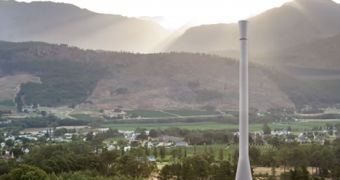Orange Guinea Conakry and Ericsson announced recently the deployment of over 100 base stations that are fully powered by solar energy, meant to provide connectivity in remote parts of rural Africa. The mobile phone carrier is trying to increase its coverage in both rural and urban areas through Ericsson's energy-efficient base stations, which use a hybrid diesel-battery solution and solar panels.
Alassane Diene, CEO of Orange-Guinea Conakry, stated that the new solution would be able to allow the company to make considerable reductions to its energy bill. The new base stations can be installed easily and need less maintenance than traditional sites would. At the same time, they have been designed to provide higher reliability and to also improve the quality of service.
Ericsson's hybrid diesel-battery energy solution is used to replaces one of the site's diesel generators with a pack of specially designed batteries, which are able to handle a large amount of charging and discharging. At the same time, the new self-contained power solution can be configured so as to meet the optimal charging and discharging levels of the battery, while also being able to extend the lifetime of both the battery and the generator. In addition, the solution can also provide around 50 percent reduction in energy-related costs.
As a main-remote solution, the Ericsson BTS 2111 radio base station does not include any moving parts, eliminating the use of cooling fans. The solution is able to reduce the power consumption by up to 50 percent, as it enables the site to be powered entirely by solar energy, while also including a battery bank that provides it with continuous operations.
Orange Group announced that it planned to deploy to its African operations more than 1,000 base stations that are entirely powered by solar energy by the end of the ongoing year.

 14 DAY TRIAL //
14 DAY TRIAL //